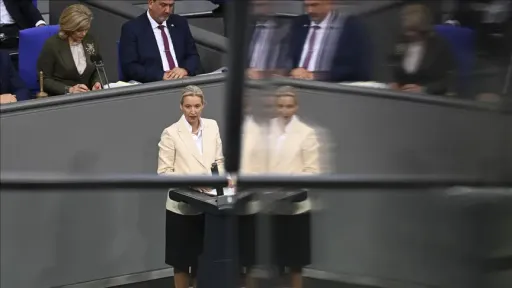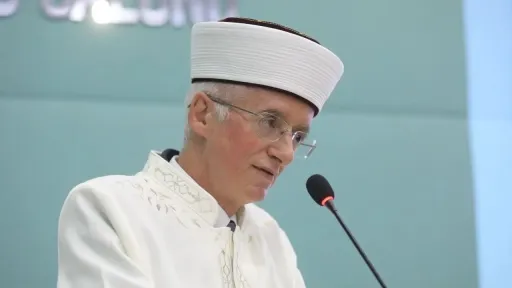German far-right AfD wins a state election for 1st time

Germany’s far right has won a state election for the first time since World War II, preliminary official results showed Sunday.
The anti-immigrant Alternative for Germany (AfD) party managed to win 32.8% of the vote in the state of Thuringia, while the center-right Christian Democrats (CDU) came in second with 23.6%.
The newly formed left-wing populist party Bundnis Sahra Wagenknecht (BSW) came in third by winning 15.8% of the vote.
Chancellor Olaf Scholz’s Social Democrats (SPD) suffered one of their worst election results in the state with just 6.1%. Their coalition partners – the Greens and the liberal Free Democrats – failed to make the 5% threshold necessary for entry into the state parliament.
Crucially, none of the parties managed to win enough seats in the parliament to be able to form a single party majority government.
The far-right AfD is unlikely to come to power despite its election win, as all other parties ruled out any coalition with it.
The AfD’s co-chairwoman, Alice Weidel, hailed her party’s performance as a “historical success” and said that voters have punished Scholz’s coalition government.
She called on the CDU and other parties to change their stance against the AfD and engage in talks with them to build coalition governments in Thuringia and the neighboring state of Saxony.
“The voters want to see the AfD in the government. We are representing around 30% of voters in both federal states. Without us, a stable government is no longer possible,” she said.
‘Alarming signal for democracy’
The Left Party, which enjoyed significant support in both Thuringia and Saxony in the past, suffered the biggest losses of the night.
Its co-chairwoman, Janine Wissler, said it was a “bitter election night” for her party, as it saw its support plummet to below 13% in Thuringia from 31% in 2019.
“And for the first time since the end of the Nazi era, a fascist party has become the strongest group in the state parliament. This is of course an alarming signal,” she told public broadcaster ARD.
In Saxony, the AfD also managed to increase its vote share. However, it came in second place behind the Christian Democrats by a slim margin.
The center-right CDU won a narrow victory with 31.9% of the vote, while the AfD got 30.6%, according to the preliminary official results.
Sahra Wagenknecht’s left-wing BSW party secured third place by winning 11.8% of the vote.
Chancellor Scholz’s left-liberal coalition government suffered heavy losses in Saxony as well amid growing voter discontent with the government’s Ukraine policy, costly energy reforms, and concerns about irregular migration.
The Social Democrats could only win 7.3%, while the Greens scored only 5.1%. Their coalition partner the Free Democrats failed to pass the electoral threshold to enter the state parliament.
Sunday’s vote in the two eastern states was widely seen as a barometer of what voters think about Scholz’s liberal-left coalition government ahead of next year’s federal elections.
Exit polls showed that most voters were concerned about their economic welfare and were demanding stronger measures from authorities to stop irregular migration and address domestic security threats.
AA







